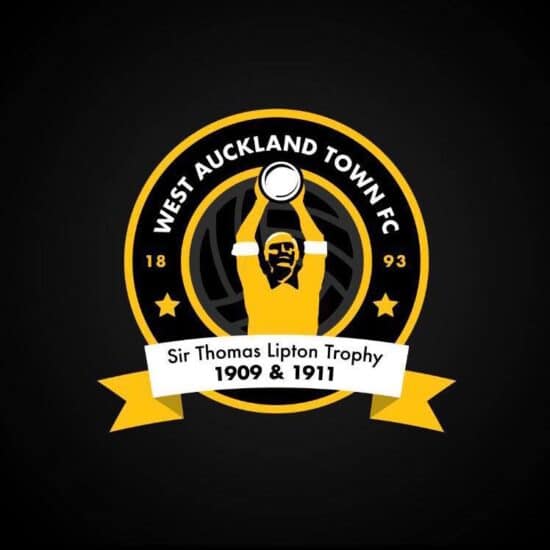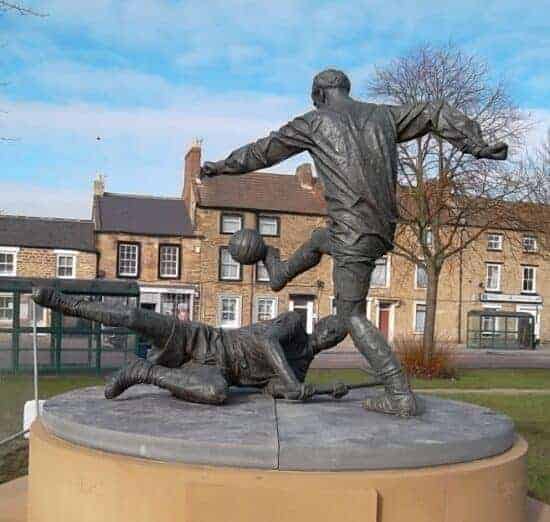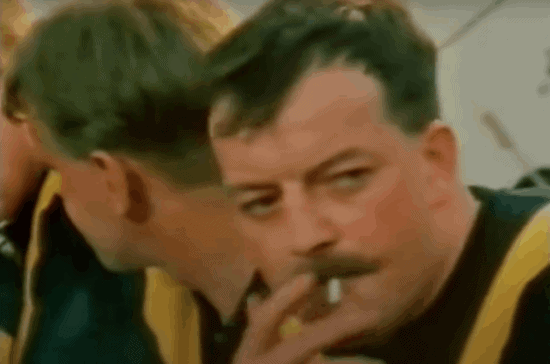What is the difference between a stadium and a ground in English football? This is…
A Captain’s Tale is a Fun Little English Football History Lesson
The full title of the film A Captain’s Tale includes the phrase “World Cup,” as in fact it’s the true story of what some folks call the “first World Cup.”
That, for me, is a stretch in the extreme, but it’s still an interesting story, and the film itself is a fun little jaunt in the history of English football.
What is the True Story of “The First World Cup”?
In 1908, the city of Turin, Italy held an international tournament with four teams, one each from Italy, France, Germany and Switzerland. But without an English team, it lacked prestige, the English being the fairly recent inventors of the game and, it was assumed, still the best at playing it.
So the next year, in order to raise the profile of the affair, Sir Thomas Lipton, of tea fame, proposed another tournament: same format, but with a club from England.
The English Football Association declined to take part, in a move that was typical of England at the time, their attitude basically being, “We invented the game, we’re the Empire, you don’t matter, we won’t deign to participate in your folly.” In fact, the true World Cup would start in 1930 — with international teams, not clubs like in the “Lipton Trophy” — but England wouldn’t even show up for that until 1950! (And go out immediately after losing to the US, I might add.)
Without approval from the FA or the Football League, Lipton turned to an amateur team, West Auckland Town FC of County Durham, up by Newcastle. How that decision was made is shrouded in mystery (although A Captain’s Tale has a lovely answer to it), but the team of local coal miners won the thing in 1909, then defended their title in 1911, beating Juventus 6-1 in the final.
As the tournament was never held again, West Auckland has therefore held the Lipton Trophy since. But the expenses of going to Italy had added up — the team of mostly coal miners had to pay for the trip themselves, in some cases selling possessions to do so — and the club was a whopping £40 in debt when they got back. So they pawned the trophy to the landlady of their home pub, who then held it for 50 years, only giving it back for £100 in 1960! It was then stolen from the local social club in 1994, never to be seen again.
There was even a rematch of sorts, 100 years later. Juventus invited the still-amateur West Auckland Town over for a game against their under-21s at the training ground in Turin. After an arduous (24-hour coach) journey, the English lads took a 7-1 beating before a crowd of 500 people. They got to keep the trophy, though.
This lovey short film from the BBC tells a bit more about the original tournament.
The Film A Captain’s Tale
A Captain’s Tale is a made-for-TV movie that came out in 1982, in the build-up to that year’s World Cup. It’s a charming little film that wouldn’t have challenged for awards or anything, but it’s just over an hour, and it’s free on the internet, so it’s an fun soccer-related distraction.
It starts with the death of the actual captain, in a scene that honestly adds nothing to the movie except a reminder that, hey, old folks have stories to tell. The rest of the film is a flashback, mostly to the team, as they bicker with one another (“With some more playing from you lot, I wouldn’t have to do so much kicking”) and listen to the chairman prattle on about finances, the league table, and the Boer War.
The film does take part in a long-standing football film tradition: making fun of the FA, who are here seen as using pigeons to retrieve scores from the Cup, decrying the “northern upstarts” with their bloody telephones.
Lipton, meanwhile, is told “It seems the Italians are daft about football,” so he arranges a kickabout, then chooses the Durham miners because, at least in the film, a local lad expressed such heartfelt gratitude for a previous act of charity on his part. Lo and behold, that kid is now on the team, though in a recurring joke, he can’t understand a word of these posh southerners’ fancy talk. They also can’t handle real ale and request sherry instead, the wankers.
Still, the lads love Italy, with the cheap wine, the (electric) lights “you don’t have to light,” the warm showers, and the prostitutes offering “boom boom.” They aren’t so sure abut the pasta or the “see-through” beer. They are also mistaken for Woolwich Arsenal, the “WAFC” in the telegram being misunderstood by the daft Italians, but they take care of business nonetheless.
The (attempt at an) inspirational moment comes at halftime of the first game, when they are down to the Swiss team, 1-0, despite their own chairman being the referee. One of the lads puts down his cigarette and says something like, “Four generations of colliers in my family didn’t raise no bloody weeping willows. I don’t give a bugger for Sir Thomas Lipton. I don’t give a bugger for England; all they do is keep us down a dark hole 12 hours a day. But I care for us, West Auckland! So let’s get out there and show them our bloody iron!”
With that, and a timely sub (a new innovation considered bizarre by the Brits), they make the final, where they take on the “tricky buggers” from Italy, one of whom is seen to, somehow, magically, make the bloody ball swerve in the air!
Being English, and northern ones at that, they proceed to kick the shit out of the Italians and carry the trophy off for a proper drink-up in town. A couple of the players even turned down professional contracts to go back and receive the adoration of their soot-covered friends and family back home.
It’s all good fun, so why not make yourself a bowl of popcorn, turn the volume up, give yourself a few minutes to adjust to the accents, and give it a go?











Post Comments